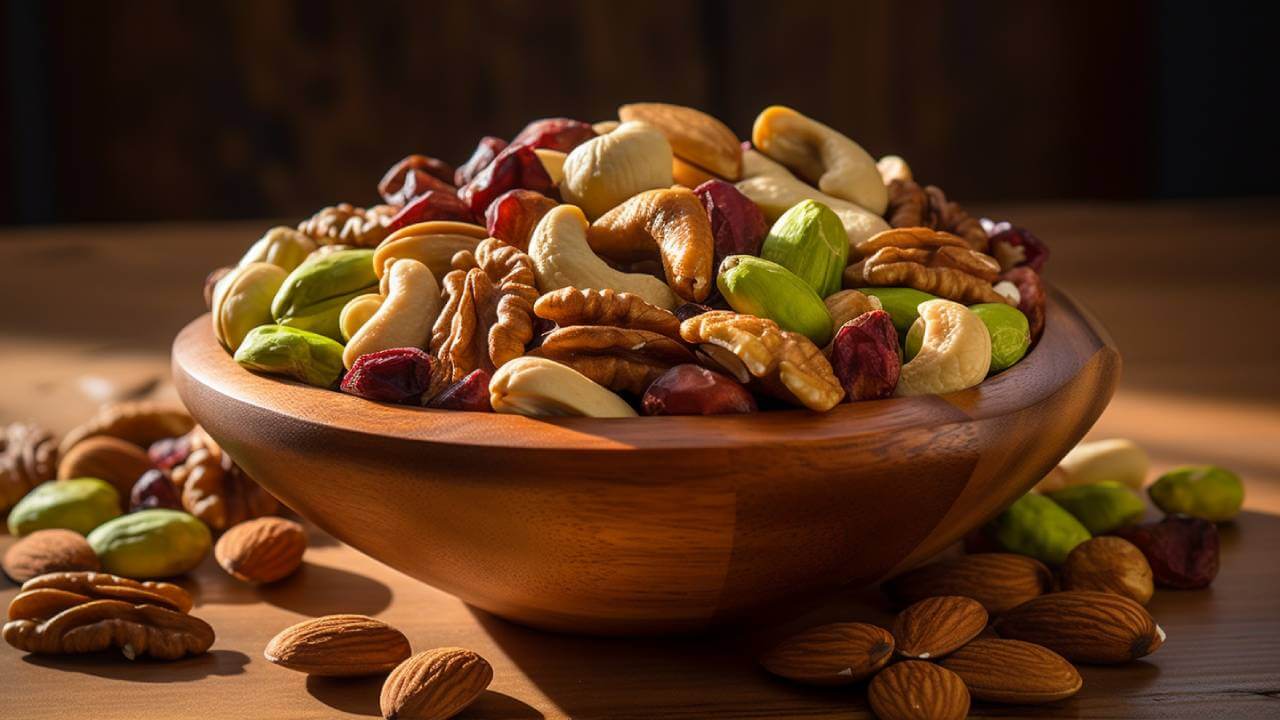If you’ve ever wondered whether your dog can enjoy the crunchy goodness of nuts, the short answer is yes, but with caution. Nuts can be a tasty treat for your furry friend, but not all nuts are created equal. While some offer health benefits, others can be harmful. Let’s explore which nuts are safe and which ones to avoid for your beloved pet.
Which Nuts Are Safe for Dogs to Eat?
When sharing nuts with your furry friend, knowing which ones are safe and which to avoid is essential. Can dogs eat nuts? Yes, but it’s crucial to be discerning. Here are some nuts that are generally considered safe for dogs to eat:
Peanuts
Peanuts can offer several benefits when given to your dog in moderation. These tasty nuts are a good source of protein, which is essential for your dog’s muscle development and overall health.
Additionally, they contain healthy fats that can contribute to a shiny coat and provide a source of sustained energy. Moreover, peanuts are rich in vitamins and minerals, such as niacin and vitamin E, which can support your dog’s immune system and promote skin health.
When offered as an occasional treat, plain, unsalted peanuts can provide your furry friend with a flavorful and nutritious snack. Just remember to watch the portion sizes and ensure they are free from harmful additives, such as salt or flavorings.
Chestnuts
Chestnuts can be a beneficial addition to your dog’s diet when appropriately prepared. These nuts are a good source of dietary fiber, which can aid in digestion and help regulate bowel movements in your furry friend. Additionally, chestnuts are relatively low in fat, making them a healthier nut option for dogs, especially those prone to weight issues.
Furthermore, chestnuts offer essential vitamins and minerals, including vitamin C and potassium, which can contribute to your dog’s overall well-being.
However, it’s crucial to ensure that chestnuts are thoroughly cooked and free from any seasonings or additives that might be harmful to your pet.
Cashews
Cashews can offer some nutritional benefits for your dog when given in moderation. These kidney-shaped nuts are a good source of healthy fats, including monounsaturated and polyunsaturated fats, which can contribute to your dog’s overall well-being. These fats are essential for maintaining healthy skin and a glossy coat.
Moreover, cashews provide essential minerals like magnesium and phosphorus, which support bone health and muscle function in dogs. Additionally, they contain antioxidants, such as vitamin E, which can help boost your pet’s immune system and protect their cells from oxidative damage.
However, it’s essential to emphasize moderation when offering cashews to your dog, as they are calorie-dense and can lead to weight gain if consumed excessively. Ensure the cashews are plain and unsalted, as added flavorings or salt can be harmful.

Unsafe Nuts for Dogs
When it comes to nuts, there are several varieties that you should avoid giving to your dog due to their potential health risks. Here are some of the most unsafe nuts for dogs:
Macadamia Nuts
Macadamia nuts are toxic to dogs, but the exact cause is not fully understood. Dogs can have various adverse reactions, including vomiting, muscle weakness, tremors, and elevated body temperature. The specific toxins or compounds responsible are unknown, and individual sensitivity varies.
Walnuts
Walnuts can harm dogs due to mycotoxins in moldy walnuts, their high-fat content causing potential pancreatitis, and the choking hazard posed by their size and hardness. Avoid giving walnuts to your dog to ensure their safety.
Pecans
Pecans are best avoided for dogs because of their high-fat content, which can strain their digestive system and potentially lead to pancreatitis. It’s safest not to feed pecans to your dog to prevent any health issues related to excessive fat intake.
How Many Nuts Can My Dog Eat?
The number of nuts your dog can safely eat depends on their size, breed, and individual tolerance. Generally, limiting the intake to a few nuts per week as an occasional treat is best.
Nuts should always be the same as your dog’s regular balanced diet. Overindulgence in nuts can lead to digestive upset, excess calorie intake, and potential weight gain. It’s crucial to watch portion sizes and monitor your dog for any adverse reactions when introducing nuts into their diet. Always consult with your veterinarian if you have concerns about the appropriate quantity of nuts for your specific dog.
Conclusion
While some nuts can offer health benefits and make a tasty treat for your canine companion, exercising caution and selecting suitable nuts is crucial. Always opt for unsalted, plain varieties and feed them in moderation. Watch your dog for adverse reactions, and consult your veterinarian if you have any concerns about nut consumption.

FAQs
Can dogs eat pistachios?
Yes, pistachios are safe for dogs in small amounts. However, removing the shells and avoiding salted or flavored varieties is essential.
Are there any benefits to feeding nuts to dogs?
Yes, some nuts can provide essential nutrients like protein and healthy fats. However, they should only be considered as an occasional treat.
Can dogs eat peanut butter?
Yes, plain, unsalted nut butter, such as peanut or almond butter, can be a tasty and healthy dog treat. Just ensure it doesn’t contain xylitol, a sugar substitute that is toxic to dogs.
Can dogs eat hazelnuts?
Hazelnuts are generally safe for dogs but should be given in moderation due to their high-fat content.
What should I do if my dog accidentally eats toxic nuts like macadamia?
Contact your veterinarian immediately if your dog consumes toxic nuts like macadamia. They can guide you on addressing potential symptoms and ensure your dog receives appropriate treatment.






0 Comments